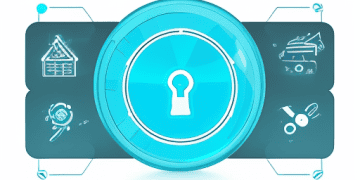Bunge Global SA has partnered with Bangkok Produce Merchandising Public Co. Ltd. (BKP), a subsidiary of Charoen Pokphand Foods Public Co. Ltd. (CP Foods), to test a blockchain-based traceability platform designed to enhance transparency in the soybean supply chain. This platform was used to monitor the shipment of 185,000 tonnes of deforestation-free soybean meal from Brazil to Thailand, allowing CP Foods to trace the origin of the soybeans from their source farms through processing, transportation, and final delivery.
The collaboration aims to ensure that the soybean products meet environmental and social sustainability standards. BKP, a key feed ingredient trading business of CP Foods, plays an essential role in the initiative. By July, an additional 180,000 tonnes of soybean meal are expected to be shipped, expanding the scope of the project. The products involved adhere to both Bunge’s and BKP’s verification standards for sustainable sourcing, particularly in regions of Brazil where deforestation has been halted since 2020.
The blockchain system not only tracks compliance with socio-environmental protocols but also provides consumers with detailed information on the carbon footprint and regenerative agricultural practices of the farms. The platform aims to strengthen consumer confidence by offering a secure and unalterable record of the soybeans’ sustainability credentials.
Bunge’s Vice President of Agribusiness in South America noted that the integration of blockchain technology enhances the transparency of the supply chain, contributing to consumer trust in sustainable products. This system enables Bunge to connect sustainable goods to markets with increasing demand for such products.
The CEO of BKP emphasized the importance of the partnership for connecting blockchain traceability solutions to global suppliers, partners, and farmers. The initial shipments of deforestation-free soybean meal from Brazil to Thailand have been fully traceable, marking progress toward CP Foods’ goal of achieving a 100% deforestation-free supply chain by 2025.
Since October 2023, Bunge and CP Foods have been working to develop a blockchain-powered solution to integrate sustainable supply chain practices across their operations. The agreement involves oilseeds and byproducts sourced from Bunge in Brazil, which are distributed to various Asian countries by CP Foods and BKP.
The blockchain technology enhances the reliability of traceability data by ensuring that once it is entered, it remains immutable. Ongoing tests aim to automate the connection between Bunge and BKP’s supplier management systems and socio-environmental monitoring tools, providing customers with access to detailed traceability and socio-environmental information.
Bunge’s supplier monitoring system currently spans over 16,000 farms in South America, covering approximately 20 million hectares. Using satellite technology, Bunge monitors land use changes and soybean planting, focusing on areas vulnerable to deforestation in Brazil. The company aims to include indirect suppliers by 2025, with more than 97% of soybeans sourced in Brazil already being deforestation and conversion-free.
This partnership highlights the role of blockchain in improving supply chain transparency and promoting sustainable agricultural practices, as both companies work toward a future of more transparent and sustainable food production.
Discover top stories in supply chain logistics news on The Supply Chain Report. For free tools related to international trade, visit ADAMftd.com.
#BlockchainInAgriculture #SupplyChainTransparency #SustainableSoybean #AgriTechInnovation #GlobalFoodSupplyChain















